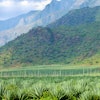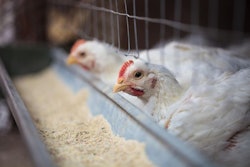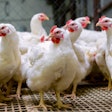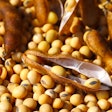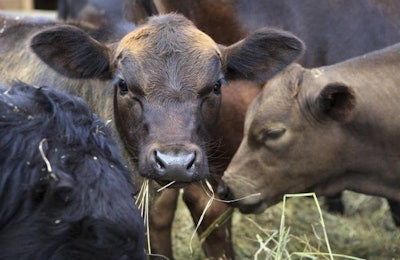
Loss of status as a country free of foot-and-mouth disease (FMD) is hitting producers and processors in the Republic of South Africa.
After similar moves by Botswana and Swaziland, Mozambique is the latest country to impose a ban on the import of a range of animals and animal products from South Africa, according to the country’s agriculture ministry.
FMD is one of the most severe and serious diseases of livestock. It can spread easily and affects cows, pigs, sheep and goats. The highly infectious virus causes a high fever for between two and six days, followed by blisters inside the mouth and on the feet that may rupture and cause lameness.
In order to prevent the spread of the disease, Mozambique has halted imports of cattle, goats, sheep, and swine and all their respective products (except those subjected to heat treatment to deactivate the virus). Pasteurized dairy products and heat-processed meats are exempt from the ban.
The World Organisation for Animal Health (OIE) suspended South Africa’s FMD-free status after receipt of a notification from the country’s agriculture department that FMD had been detected in an area that had been included in South Africa’s FMD Free Zone. In early January, two cattle among a village herd of 3,600 in the Makhado region of the province of Limpopo tested positive for the disease.
Official reports from the South African veterinary authority to the OIE indicate that the FMD virus had not been detected between February and May of 2018. Since May 2018, FMD cases were found at six locations in Limpopo province that are included in South Africa’s FMD Protection Zone, where vaccination may be carried out. This means these outbreaks did not affect the status of the country’s FMD Free Zone, where vaccination against the disease is not permitted.
However, the Makhado outbreak this month was in the FMD Free Zone, and thus South Africa lost its FMD-free status. There have since been a further 10 FMD cases among 20,000 village cattle in the same district.
The Red Meat Producers’ Organisation (RPO) of South Africa has stressed that meat is still safe to eat as FMD does not affect human health, reports IOL, but the loss of export markets will lead to a drop in prices.
This scenario will be catastrophic for producers, warned RPO chairman, Koos van der Ryst.
Prevention strategies
The FMD outbreaks have occurred just as South African herds were being built up again after the 2016 drought, and as feed prices have been rising while consumers’ purchasing power is under pressure.
A ban has been imposed on the movement of all live cloven-hoofed in the affected area, Vhembe district, according to the Department of Agriculture, Forestry and Fisheries (DAFF).
At a meeting last week between the Minister and industry, it was agreed to limit the area where animals are being vaccinated to make the long-term management of the disease as easy as possible, without compromising the containment of the disease.
DAFF also announced an increased police presence to prevent illegal animal movements, and that feed will be provided to affected villages to reduce the interaction between different herds at grazing sites.
By January 21, more than 4,000 animals in nine villages had been vaccinated. Animal health teams are investigating after clinical signs of FMD were reported at three more villages.

